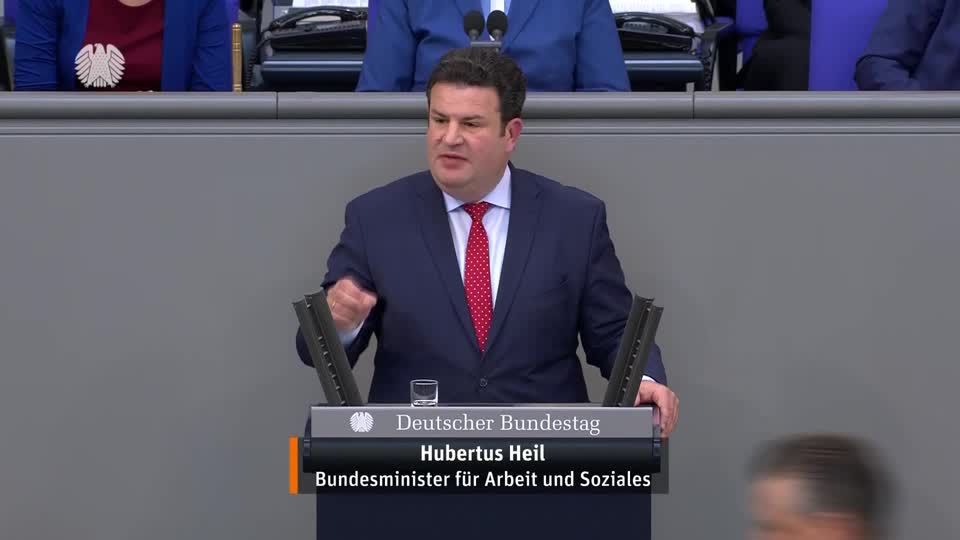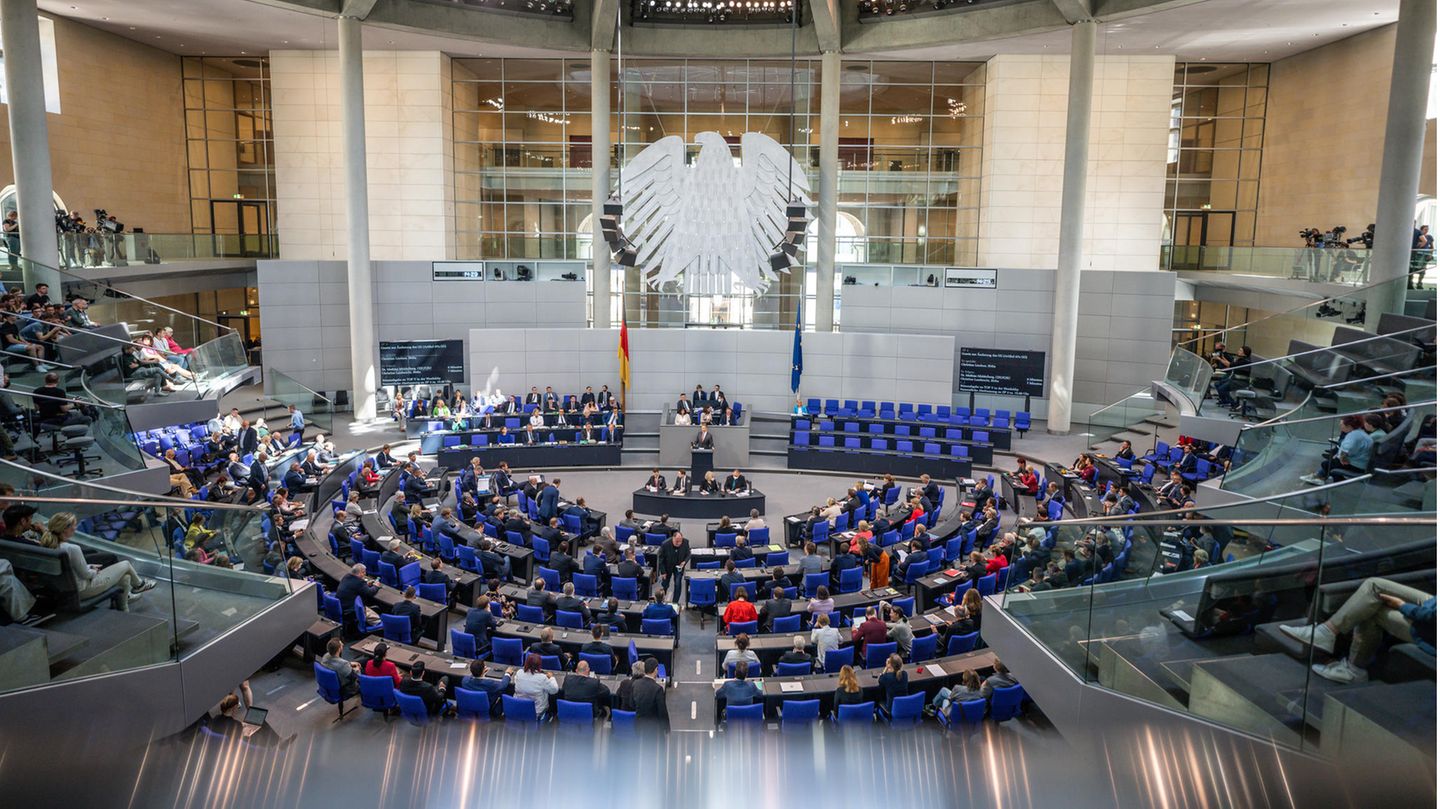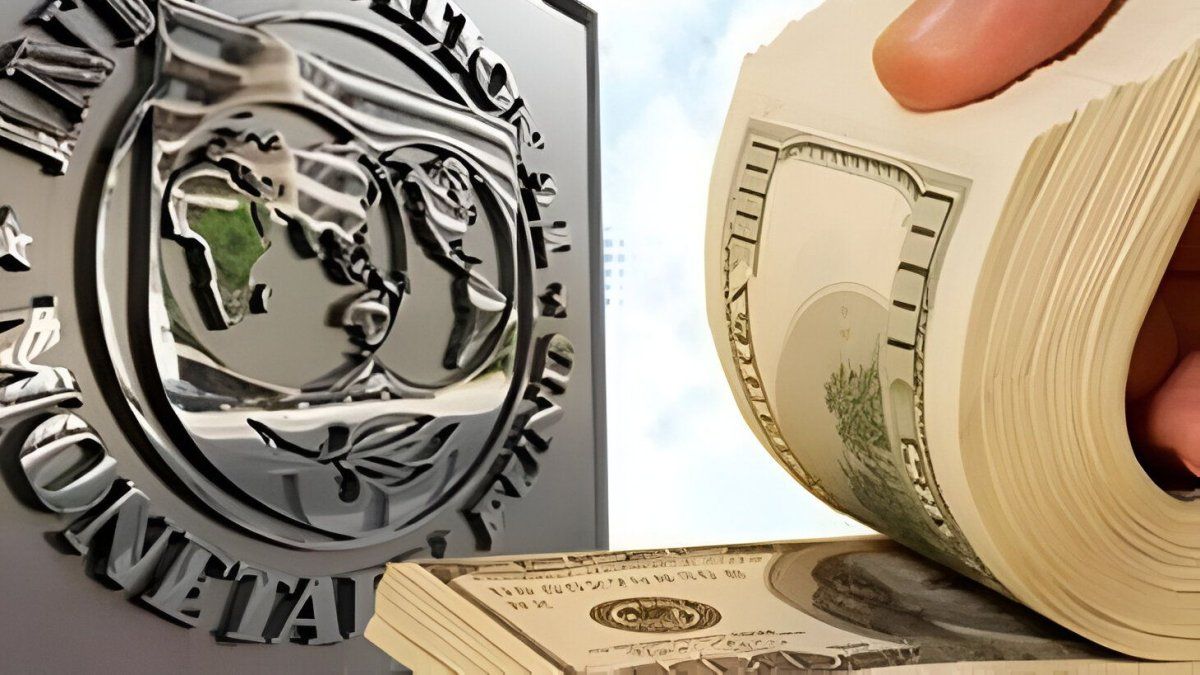For the third year in a row, the federal government has to take out large loans. This time it is also due to the Ukraine war. The finance minister has other plans for 2023.
The federal government can spend almost half a trillion euros this year and incur high debts again. The Bundestag approved the budget of Finance Minister Christian Lindner (FDP) on Friday with a large majority. Characterized by the Ukraine war and the corona pandemic, it again provides for loans of 138.9 billion euros. To this end, on Friday, the MPs again withdrew the exemption from the debt brake enshrined in the Basic Law.
Normally, the budgets are decided shortly before the beginning of the year – after a federal election, however, this can hardly be adhered to, especially if there has been a change of government. The ministries of the red-green-yellow federal government have therefore been working with a provisional budget since the beginning of the year.
Focus on climate protection and energy transition
In its first full year of government, the traffic light coalition wants to spend a total of around 495.79 billion euros. One focus is on investments in climate protection and the energy transition. At the same time, the budget of Defense Minister Christine Lambrecht (SPD) will increase to more than 50 billion euros – in addition to the planned special pot, from which 100 billion will be invested in the armed forces in the coming years.
The consequences of the Russian war in Ukraine can also be seen elsewhere in the budget. In addition to taking in refugees, aid for companies and citizens is financed. The explosive rise in energy prices and the high inflation rate are to be cushioned somewhat, above all by way of tax cuts.

Lindner: Debt brake should apply again in 2023
For all taxpayers, the basic allowance on which no income tax is paid increases. Long-distance commuters receive special tax relief. In addition, lower energy taxes apply to fuel in June, July and August. All employees who are subject to income tax also receive an energy price flat rate of 300 euros, people with little money a subsidy towards heating costs and families an immediate surcharge. Aid packages were also put together for the economy and depreciation rules changed. A big chunk is also the abolition of the EEG surcharge from the electricity bill from the middle of the year.
The figures met with criticism from the opposition. The left criticized that important social projects such as basic child security and the planned citizen benefit were being postponed. The Union considers the new debt to be significantly too high. “It’s not a budget, it’s a mountain of debt,” said Alexander Dobrindt, head of the CSU deputy in the Bundestag. The CDU and CSU advocate resolving billions in reserves now and not only in the future, and saving in some areas. Instead, the coalition is announcing new spending.
In his next budget, the one for 2023, Lindner then wants to comply with the debt brake regularly again. The Basic Law still allows loans, but to a much lesser extent depending on the economic situation. The FDP boss has already started talks with the ministers about their budget for the coming year. He wants to focus on combating high inflation and has therefore already warned that there cannot always be new subsidies that create even more demand and thus pressure on prices. “We are now ending the addiction to more and more debt and more and more subsidies,” he announced.
Source: Stern
David William is a talented author who has made a name for himself in the world of writing. He is a professional author who writes on a wide range of topics, from general interest to opinion news. David is currently working as a writer at 24 hours worlds where he brings his unique perspective and in-depth research to his articles, making them both informative and engaging.




